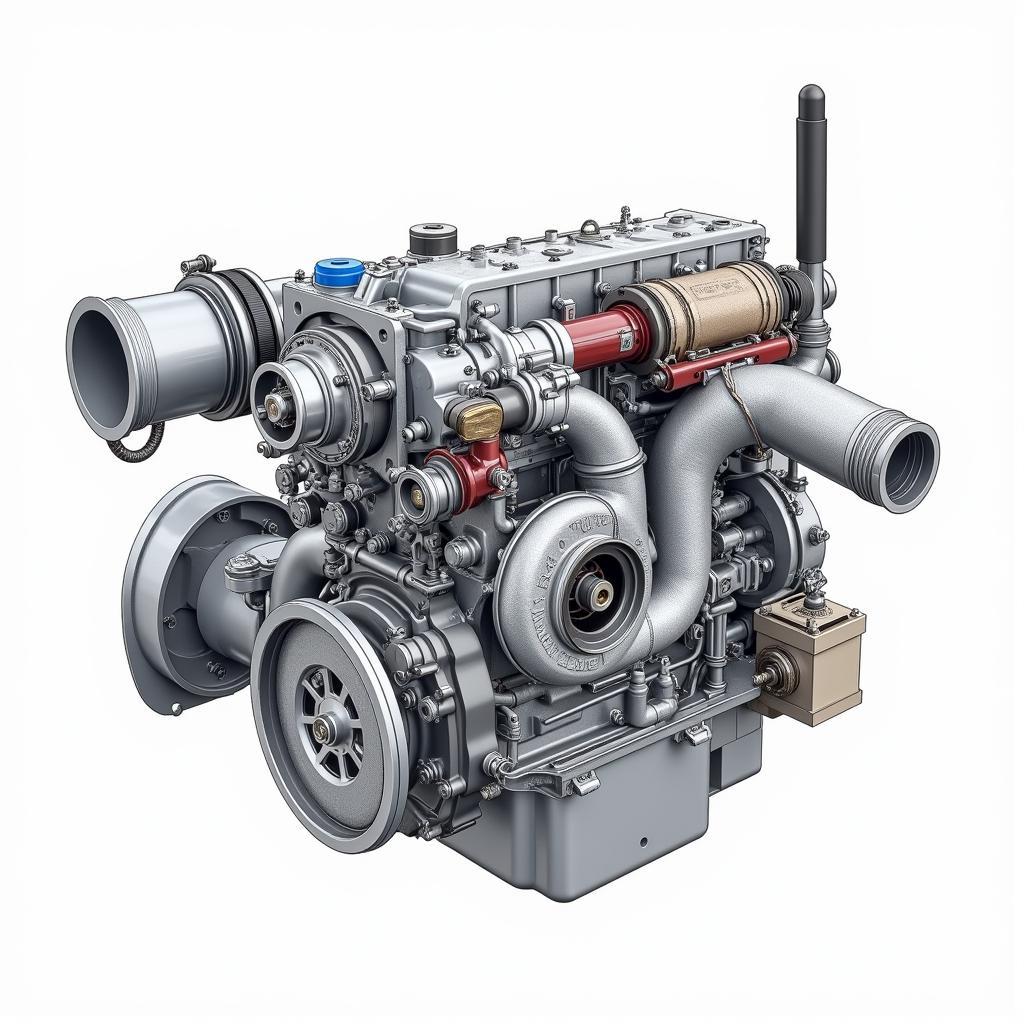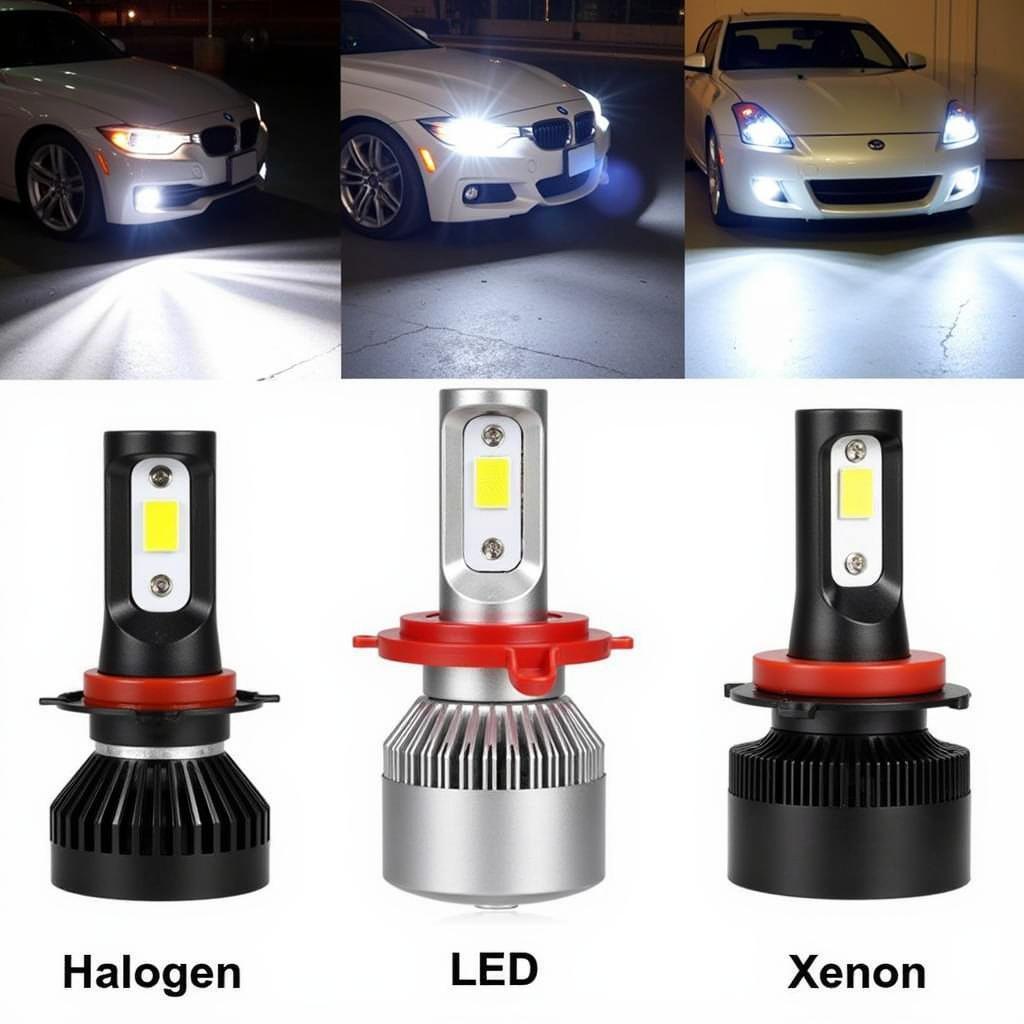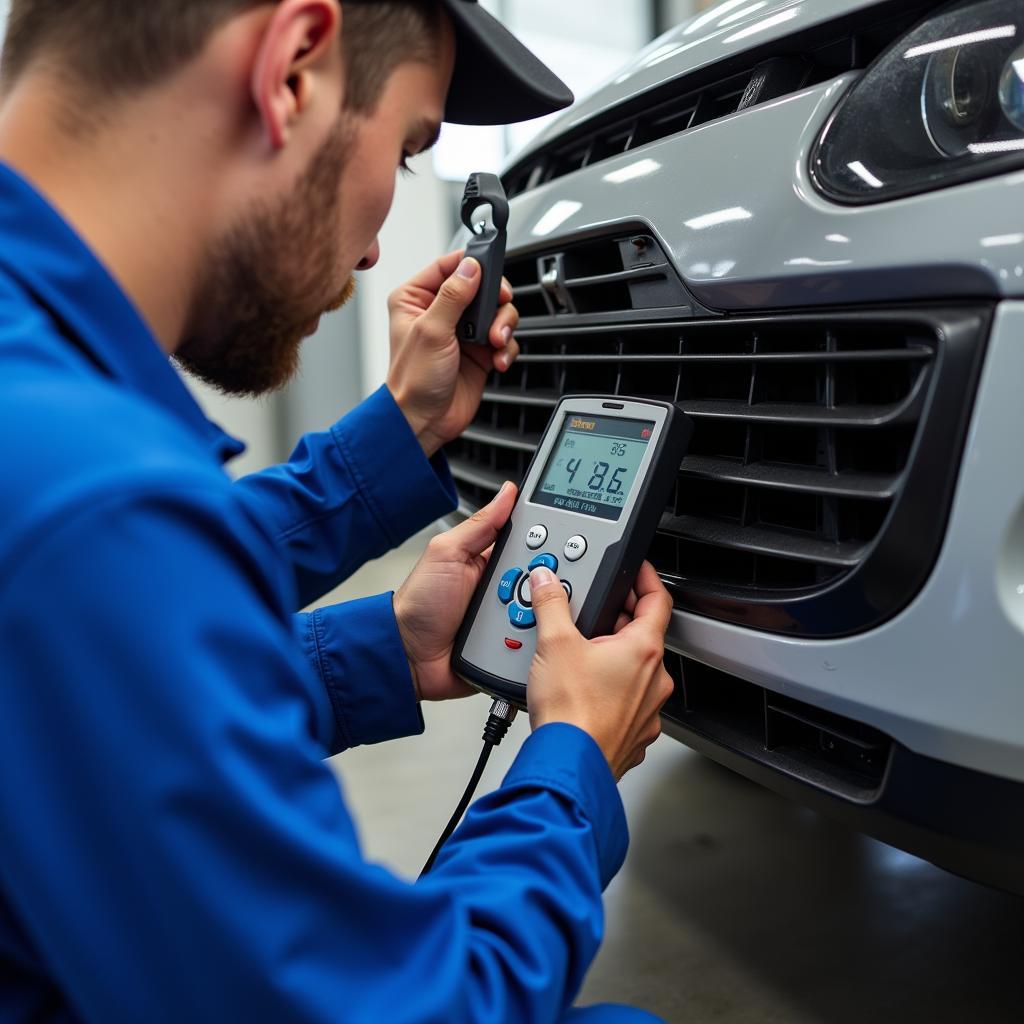How to Service a Turbo Diesel Car
Maintaining your turbo diesel car in top condition requires regular servicing. While the process shares similarities with servicing a gasoline engine, there are crucial differences specific to the turbo diesel system that demand attention. Neglecting these can lead to costly repairs and compromised performance. This guide provides a comprehensive, step-by-step approach to servicing your turbo diesel car, ensuring optimal performance and longevity.
Understanding Turbo Diesel Service Requirements
Before diving into the servicing steps, it’s crucial to understand the unique needs of a turbo diesel engine. Compared to their gasoline counterparts, these engines operate at higher pressures and temperatures, demanding robust components and specialized fluids. The presence of a turbocharger further adds to the complexity, requiring specific maintenance procedures.
 Turbo Diesel Engine Components
Turbo Diesel Engine Components
Essential Servicing Tasks for Turbo Diesel Cars
Servicing a turbo diesel car goes beyond a simple oil change. Here’s a breakdown of essential tasks:
1. Oil and Filter Change: The Lifeline of Your Engine
Turbo diesel engines exert significant stress on their lubrication system. Therefore, using high-quality diesel engine oil that meets the manufacturer’s specifications is non-negotiable. This oil is specifically designed to handle the intense heat and pressure generated by these engines, preventing premature wear and tear. Similarly, the oil filter plays a crucial role in removing contaminants from the oil, ensuring its effectiveness.
Frequency: Every 5,000-7,500 miles or as recommended by the manufacturer.
2. Fuel Filter Replacement: Keeping the Fuel Flowing
The fuel filter prevents contaminants from entering the delicate fuel injectors and engine. Given the high-pressure environment of a turbo diesel engine, even microscopic particles can cause significant damage.
Frequency: Every 15,000-20,000 miles or as recommended by the manufacturer.
3. Air Filter Inspection and Replacement: Breathing Easy
A clean air filter ensures optimal airflow to the engine, which is critical for combustion efficiency and performance. A clogged filter restricts airflow, reducing power output and potentially harming the engine in the long run.
Frequency: Every 15,000-20,000 miles or as recommended by the manufacturer.
4. Turbocharger Inspection: The Heart of Performance
The turbocharger is a vital component of a turbo diesel engine, responsible for boosting power output. Regular inspection checks for any signs of wear and tear, including shaft play, oil leaks, or unusual noises.
Frequency: At least once a year or as recommended by the manufacturer.
5. Fuel Injector Cleaning: Precision Fuel Delivery
Fuel injectors are responsible for delivering precise amounts of fuel into the combustion chamber. Over time, deposits can build up on the injector tips, affecting their spray pattern and combustion efficiency.
Frequency: Every 30,000-40,000 miles or as recommended by the manufacturer. You can learn more about the importance of fuel injector service here: do cars require injector fuel service.
6. Exhaust Gas Recirculation (EGR) System Cleaning: Emission Control
The EGR system reduces harmful emissions by recirculating a portion of exhaust gases back into the combustion chamber. However, this process can lead to soot buildup in the EGR valve and intake manifold, affecting engine performance and increasing emissions.
Frequency: Every 30,000-40,000 miles or as recommended by the manufacturer.
7. Coolant Flush: Maintaining Optimal Temperature
The cooling system plays a vital role in maintaining the engine’s operating temperature. Over time, the coolant can become acidic and lose its effectiveness.
Frequency: Every 30,000-50,000 miles or as recommended by the manufacturer.
Signs Your Turbo Diesel Car Needs Servicing
While adhering to the recommended service intervals is crucial, being vigilant about warning signs can help prevent major issues:
- Reduced fuel economy: A noticeable drop in fuel efficiency can signal a problem with the fuel system, turbocharger, or other engine components.
- Loss of power: A sluggish engine that struggles to accelerate could indicate a problem with the turbocharger, fuel injectors, or clogged air filter.
- Excessive smoke: Black smoke from the exhaust usually indicates incomplete combustion, potentially due to faulty injectors, a clogged air filter, or a problem with the EGR system.
- Unusual noises: Whistling or grinding noises coming from the engine, especially during acceleration, could point to a problem with the turbocharger.
- Warning lights: Never ignore dashboard warning lights, especially the check engine light.
Conclusion
Servicing your turbo diesel car is essential for maintaining its performance, fuel efficiency, and longevity. By following these steps and addressing any issues promptly, you can ensure your vehicle delivers a smooth and powerful driving experience for years to come. Remember, regular maintenance is always cheaper than major repairs.
If you need guidance on How To Service A Turbo Diesel Car or require professional assistance, don’t hesitate to reach out. We have a team of experts ready to help you keep your car in top condition.
For further information on car servicing, you can explore our article on how to do service of car.

